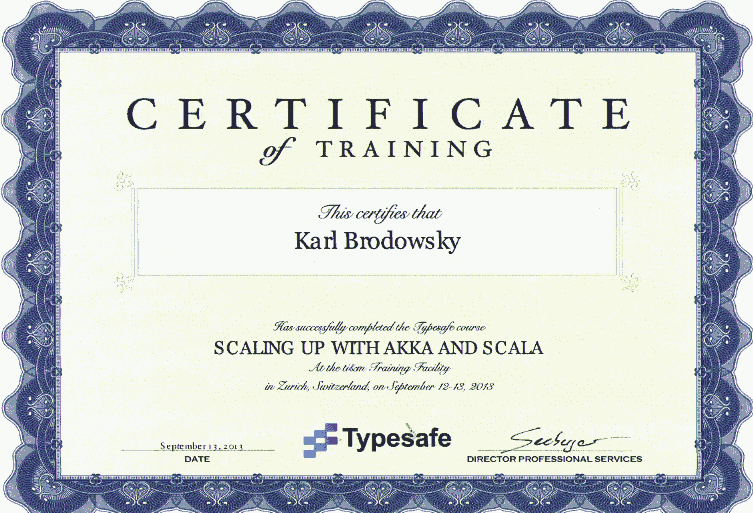Scala
Many applications nowadays are being developed using Java, but the Java platform allows you to choose other programming languages than just Java. These are compiled to the same binary format (.class) as Java programs and can make use of the existing infrastructure and libraries for Java.
One of Scala's advantages over Java lies in its conciseness, which means that Scala code is shorter and thus more easily readable and maintainable.
Scala supports functional programming better than Java 8. The type system is very powerful and supports development better than Java's type system
Besides, the language is better-suited than Java to conducting calculations using numerical types other than scalars. This is because Scala allows operator overloading, thus saving you the hassle of producing expressions like this one:
x = a.add(b.multiply(c.divide)).add(q.multiply(r.divide(s)))
Again, this improves readability and maintainability.
Most important among Scala's strengths, however, is its superior support of secure multithreading, particularly with the Akka framework.
That is what makes Scala a viable option for the development of high-performance server applications.
Scala-Relevant Knowledge
I participated four Scala classes:
- Fast track to Scala by Typesafe in Lausanne
- Advanced Scala by Typesafe in London
- Einführung in Akka by Typesafe in Zurich
- Advanced Akka by Typesafe in Amsterdam
I participated in several Scala-conferences, sometimes also as speaker:
- Scala Days 2014, 2016 and 2018 in Berlin, 2015 in Amsterdam and 2019 in Lausanne
- Scala Exchange in London 2013, 2014, 2015 and 2017
- Scala UA in Kiev 2017, 2018, 2019 and 2020 (online)
- Functional Scala in London 2019
I have also gained some experience in teaching Scala and Scala relevant issues:
- I tought a college lecture about System Programming, which included some Scala and Akka (2014)
- I participated in a half day group effort to teach beginners in Scala prio to Scala Days 2015 in Amsterdam
- I was a speaker on several Scala conferences
I have worked in a project that was primarily Scala development in 2017/2018 for about nine months for the e-shop of a major department store chain in Cologne.
My participation in Scala classes, conferences and even experience in teaching has has helped me very well for working with this technology, especially since the classes were very challenging. Moreover, I benefited from the solid foundation I was building on: since Scala has many of the same characteristics I was already familiar with from Java and Ruby.
Further Information
Blog Articles:
Tannwaldstrasse 26
4600 Olten
Switzerland
Phone: +41 79 2704802
info@it-sky-consulting.com


